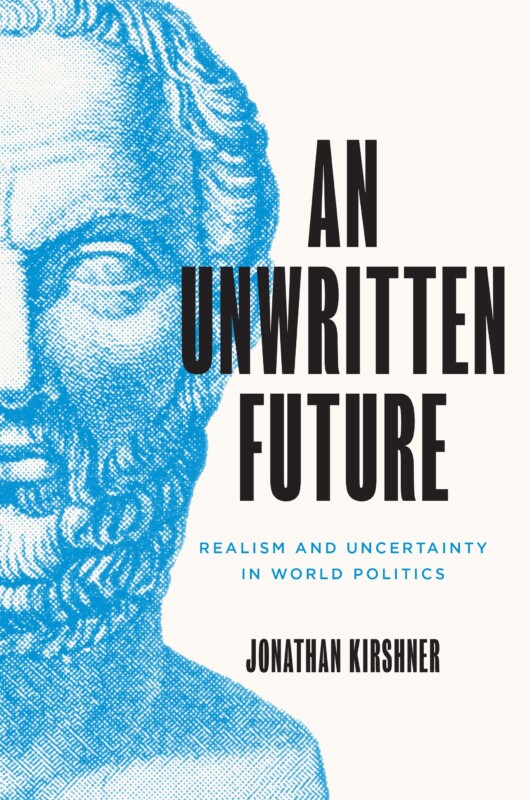C
lassical realism has been a long-standing theory in explaining international relations, and Jonathan Kirschner reminds us why. Although it has been overshadowed by newer schools of thought such as structuralism, classical realism offers great insight into contemporary issues in the international politics arena.
Have contemporary realists lost their way? With renewed emphasis on the crucial roles played by uncertainty, contingency, and contestation, An Unwritten Future: Realism and Uncertainty in World Politics shows how classical realism better explains the formative events of the past and vital issues of today while assessing the fundamental flaws of classical realism’s would-be successors, namely structural realism and hyper-rationalism. It seeks to reclaim classical realism and deem it, once again, a worthwhile theory. The book, however, does not engage in paradigm wars and does not stray away from the realist tradition.
An Unwritten Future lays out realism’s core principles and discusses the contributions of the perspective’s key thinkers, including Thucydides, Hans Morgenthau, and Raymond Aron, among others. On brand with classical realism where “doubt is not an afterthought,” Kirschner also addresses realism’s limits and shortcomings.
In turn, Kirschner explores contemporary issues, including the ascent of great power challengers, the political implications of globalization, and the diffusion of power in modern world politics—such as the implications of China’s rise, future global order, and the shifts of balance of power and nature of conflict. He also does not neglect to provide a guide to a classical realist political economy highlighting the overlooked but impactful factor of social economy.
Kirshner debunks the notion that classical realism is unscientific and supports the idea that it is better to be vaguely right than exactly wrong. He highlights classical realism’s emphasis on attending to both power and purpose where history, uncertainty, and contingency play a large role. Classical realism, therefore, offers practical utility in an increasingly unpredictable world. Kirshner applies classical realism to the case of the British appeasement of the Nazis and the U.S. involvement in the Vietnam War to demonstrate theory in practice. The book also contains a discussion dedicated to explaining the inner workings of classical realism for its persistent skeptics.
Providing a refreshing reminder of the richness of classical realism, this reexamination of the realist tradition is a must-read for students, analysts, and academics interested in international relations theory. Furthermore, An Unwritten Future is rich within its scope, delving into theory, economy, history, and contemporary topics, and provides a little something for everybody.
Jonathan Kirschner, An Unwritten Future: Realism and Uncertainty in World Politics (Princeton University Press, 2022) ISBN: 9780691166773, 336 pages
Recommended





